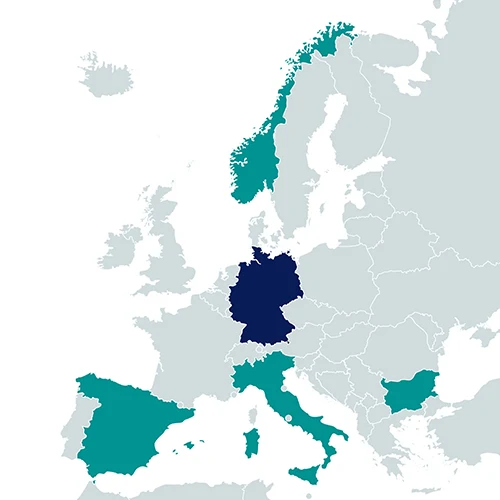2023-04-01 to 2026-03-31
Approx. 1,2 mil. EUR
Hannes J. König
Emu-Felicitas Ostermann-Miyasita
-
Department of Land use & Governance, Humboldt University of Berlin, Müncheberg, Germany
-
Department of Geography, National Institute of Geophysics Geodesy and Geography – Bulgarian Academy of Science, Sofia, Bulgaria
-
Department of Civil, Environmental and Mechanical Engineering, University of Trento, Trento, Italy
-
Department of Terrestrial Biodiversity, Norwegian Institute for Nature Research, Trondheim, Norway
-
Center for Research of Agricultural and Natural Risks, Technical University of Madrid, Madrid, Spain

The recovery of formerly rare wildlife populations (i.e. crane, wolf, beaver and others) in Europe is a remarkable wildlife conservation success story, and yet presents daunting challenges for human–wildlife coexistence in shared cultural landscapes, leading to trade-offs such as illegal wildlife killing, crop and livestock damages, and ensuing social conflicts. Ensuring long-term conservation outcomes for wildlife species, including saving of small populations from extinction to sustaining large recovered populations, requires a profound understanding of benefits and trade-offs of wildlife conservation, the effectiveness of alternative policy and management coping strategies as well as the role of stakeholders and alternative governance modes.
Advance knowledge on effective and integrative wildlife biodiversity management in Europe by:
-
Identifying the role of landscape structure and land use diversity on wildlife benefits and costs;
-
Disentangling the complex human-dynamics in wildlife management;
-
Transdisciplinary integration of academic and stakeholder knowledge as well as its generalisation and upscaling.
In the wildlife ecology approach (objective 1), machine learning-based analysis of wildlife monitoring and newly collected data, spatially-explicit analysis and modelling of wildlife benefits and costs are planned. While for the sustainability science approach (objective 2), situational analysis of stakeholders, roles, norms and priorities and relational values, quantification of ecosystem services and disservices, assessment of cost-effectiveness, acceptability and sustainability of current and novel coping strategies and modes of human-wildlife governance will be conducted. These results will be applied to the transdisciplinary integration of knowledge (objective 3), by participatory co-development and assessment of future human-wildlife coexistence scenarios and selected experimentation with co-designed coping strategies.
The combined use of these methods is expected to significantly advance knowledge on effective and integrative wildlife biodiversity management in Europe. This includes case-specific and general conditions that are either conducive or limiting for wildlife conservation in protected and shared landscapes across Europe, as well as the role of current and alternative wildlife policy and governance modes and management practices.